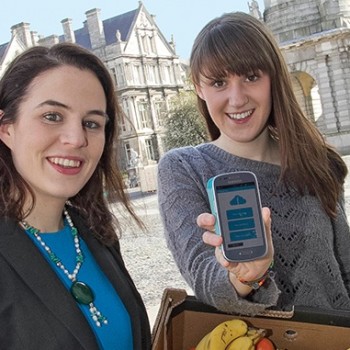Nestlé Ireland joins forces with FoodCloud

FoodCloud Hubs and Nestlé Ireland have announced a new partnership where the global food and drinks giant will supply all of its surplus food and also become the first food supplier to make a financial contribution to FoodCloud Hubs for its redistribution projects.
2 October 2018
Nestlé Ireland has committed to contribute all of its surplus stock to benefit FoodCloud Hub’s charity partners. The company will also provide a per-pallet financial contribution to cover the costs to manage, store and redistribute any unforeseen food surplus, ensuring that it feeds people first and that no food goes to landfill.
The move – a first for an Irish food supplier – creates a new sustainable income stream for the social enterprise, paving the way for other food industry partners to follow suit.
Social enterprise, as a business model, puts people and community first, ahead of private or personal gain, while operating in a commercially viable and sustainable way. Surpluses generated by the enterprise are reinvested to further their social objectives and drive greater impact.
Aoibheann O’Brien, CEO at FoodCloud Hubs, said that Nestlé’s financial contribution is a crucial milestone for FoodCloud Hubs. “Nestlé’s commitment to making a per pallet contribution is a monumental step towards FoodCloud hubs creating a sustainable income stream,” O’Brien said. “We are delighted that Nestlé Ireland is paving the way for us to enlist other food businesses towards a contribution model in the future. This will help us to expand our impact, rescue more surplus food and work with more charities across the country.”
Andrew Shaw, Nestlé Ireland country manager said the company is proud to support FoodCloud and its innovative model for reducing waste.
“We operate a robust and rigorous supply chain system that is designed to minimise surplus stock,” he said, “But it does occur from time to time. Rather than sending perfectly good food to landfill, our products will go to people who will benefit.
“It is also in keeping with our global ambition of achieving zero waste for disposal by 2020,” he added, “and our commitment to halving food waste by 2030.”



 Print
Print




Fans 0
Followers